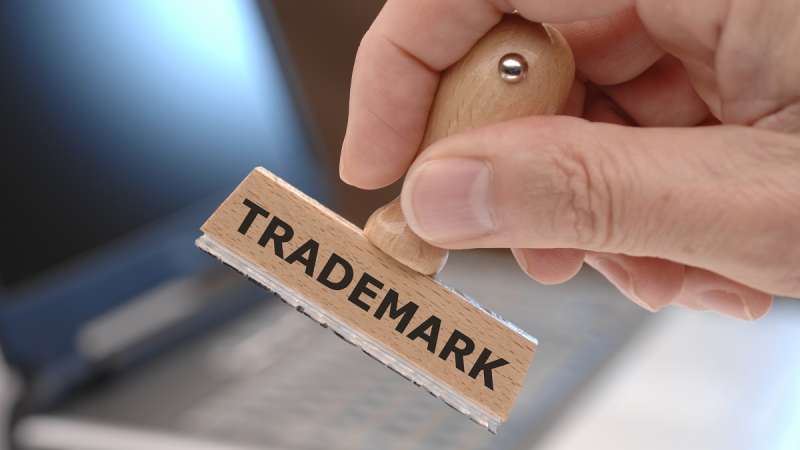Litigation Funding Options
Before deciding on whether or not you wish to pursue a claim or defend legal proceedings, it is important to understand the costs involved. Litigation can be expensive. However, there are a number of funding options available which can assist with the management of costs.
The type of litigation funding that may be available to you will be dependent on a number of factors, including the merits of your claim, the value of your claim and remedy you are seeking. If we consider that your claim has value and that it has strong prospects of success, we may be willing to share some of the financial risk with you.
We take a flexible approach to funding and offer transparent information on the likely costs of resolving your dispute from the outset.
Hourly Rates
We, along with most other law firms, record and charge our time on an hourly rate basis. This means that our charges depend on the amount of time we spend working on your dispute. We charge our time in 6 minute units (1 hour = 10 units).
We will always give you an estimate of the fees likely to be incurred for each stage of your dispute and will keep you updated on the position in relation to our fees, as appropriate.
The amount of your legal fees will be the same whether or not your claim is successful and if you are successful, you may be able to recover a contribution towards your legal fees from your opponent. If you are unsuccessful, in addition to your own costs, you may have to pay some of your opponent’s legal costs.
Fixed Fee
If appropriate, we may agree to provide advice on a fixed fee basis, for example, where you want advice on the prospects of succeeding with a claim, before formally instructing us to commence court proceedings.
Not all claims will be appropriate for us to provide advice on a fixed fee basis and this will often depend on the complexity of the facts or legal issues at hand. Even if we cannot advise on a fixed fee basis, we will be able to provide you with a fee estimate for providing the advice, in the alternative.
Why Work With Our Dispute Resolution Team
- For the past seven years, the Legal 500 has rated us as a Top Tier legal firm.
- You will get access to more than 9 dispute resolution professionals from the Myerson Dispute Resolution Group, who will assist you with , shareholder, and partnership disputes, professional negligence, commercial agency and more.
- You will obtain city-quality dispute resolution legal help at regional pricing.
- We offer a partner-led service to make sure you get the greatest legal counsel and support with a focus on business.
- Our large and experienced team can work quickly to fulfil your deadlines.
- We recognise that each transaction is unique to your specific circumstances and that you require the assistance of a dispute resolution solicitor who has dealt with a wide range of clients and types of work.
- We are a full-service law company with a single location, which ensures our employees interact effectively and efficiently.
- We employ the most recent technology to make sure that we are operating as effectively as possible and that a client's location is not a barrier to us providing outstanding customer service.
- All of our clients receive free newsletters and webinars that keep them informed about dispute resolution legal developments. View our most recent webinar on dispute resolution updates here.
- Check out the Myerson Promise for more information on the benefits of working with us.
Conditional Fee Agreement
A CFA is an agreement between a client and a solicitor which provides for the solicitor’s fees to be payable only in specified circumstances, generally only if the client wins the claim. It is sometimes known as a “no win no fee” agreement.
A CFA will generally include a success fee, which is expressed as a percentage uplift of fees, in the event the client wins. For example, if a solicitor’s fees are £10,000 (known as base fees) and the percentage uplift under the CFA is 50%, a further 50% of £10,000 would be payable as the success fee element, so £10,000 base fees plus £5,000 success fees, totalling £15,000.
The success fee percentage uplift can be anything up to 100% of the solicitor’s base fees. The success fee balances out the risk which the solicitor is taking in dealing with the claim without getting paid and facing the risk of not getting paid anything if the claim is lost.
CFAs do not normally include disbursements, so while the client will not be required to pay the solicitor’s time fees throughout the claim, the client will still be required to pay for disbursements (court fees, expert fees, barrister’s fees etc.). If the claim is successful, these fees would normally be recoverable from the other side anyway.
It used to be the case that the success fee element of the solicitor’s fees could be recovered from the other side to the litigation. This is no longer the case and means that the success fee must be paid by the client from the damages/settlement awarded.
Not all cases are suitable for our instruction on a CFA basis. We will consider the facts of your individual case to determine whether or not a CFA arrangement is suitable for your claim.
After the Event Insurance
ATE or after the event insurance is a type of legal expenses insurance policy which provides insurance cover for legal costs incurred in the pursuit or defence of litigation. It is distinguishable from BTE or before the event insurance, which might be included in home insurance policies, as it is only available for purchase after a dispute has arisen.
ATE policies typically cover a client’s own disbursements (court fees, barrister’s fees etc.) and a client’s liability to pay an opponent’s legal costs in the event that the opponent wins.
Before agreeing to provide ATE insurance, an insurer will generally want to see:
- A formal Opinion from a barrister confirming that the claim has good prospects of succeeding;
- Evidence that the premium will be paid, either from the client’s private funds or out of any damages/settlement; and
- A costs estimate to take the claim right through to trial.
There are a number of different ways of paying an ATE premium (subject to the insurer’s agreement), as follows:
- Staged premiums – Where the premium payable increases as the matter progresses, such that the cost of ATE insurance remains proportionate to the costs incurred in the claim;
- Deferred premium – This premium would only become payable at the conclusion of the case; or
- Contingent premium – This premium would only be payable if the claim is won. If the case is lost, the premium would not be payable.
The ATE premium used to be recoverable from the other side in litigation however, this is no longer the case (specifically, for policies entered into on or after 1 April 2013). As such, a party wishing to take out ATE insurance must bear the cost of the premium themselves.
There are a few exceptions to the general rule that ATE premiums are not capable of recovery from the other side, and are still capable of recovery in limited circumstances.
However, for the vast majority of commercial or personal disputes, ATE premiums will generally be irrecoverable from the other side.
We will always discuss ATE insurance with you, if applicable to your dispute. We have relationships with a number of brokers to ensure that you achieve the best policy possible, for your circumstances.
CFA/ATE Interaction
In relation to cases proceeding under a CFA, the client is not liable for the solicitor’s fees unless he wins his claim. However, if he loses his claim, while he is not required to pay any of his own solicitor’s fees, he may still be liable to pay the other side/winner’s costs.
This is where there is a strong interaction between CFAs and ATE insurance.
The client may then wish to take out ATE insurance to insure against his potential liability to pay the other side’s fees, leaving him with as little liability as possible, whether he wins or loses the claim.
Damage based agreements (“DBA”)
A damages based agreement or DBA is similar to a conditional fee agreement. However, the solicitors' fees for the work undertaken are charged as a percentage rate of the damages recovered in the litigation as opposed to charging on a time spent basis.
The percentage rate can be no more than 50% and is agreed upon at the outset when the client enters into the DBA.
In addition to any sums due under the DBA, the client will also be responsible for paying disbursements. However, barrister’s fees will, in certain circumstances, be included under the terms of the DBA.
If the claim is unsuccessful, in addition to your own disbursements, you may have to pay some of the fees and disbursements incurred by your opponent.
As with CFAs, not all cases are suitable for a DBA, and we will perform a full review and analysis of your individual case and its prospects of success to determine if this form of litigation funding is suitable.
Existing Insurance
It is worthwhile checking any existing insurance policies that you may have if you are considering pursuing or defending a claim, as often legal expenses insurance can be included as an additional benefit.
Likewise, if you are a member of an organisation or trade union, you may have legal expenses insurance or other funding assistance as part of your membership which may help you to pay legal costs.
You may also have purchased a specific product to cover certain risks which may provide cover for legal fees.
There are usually time limits for making a claim for your legal costs and so it is important to enquire with your insurer, comply with its requirements of and discuss any existing insurance cover with us at the earliest opportunity to ensure you do not lose the benefit of any cover.
Third Party Funding
Litigation funding is where a third party, with no connection to the litigation, finances all or part of the legal costs in return for a fee, often payable from the damages recovered in the claim.
Third party insurance is often used in conjunction with after the event insurance, meaning that if the case is unsuccessful, the loan will not have to be repaid as it is self-insured.
Third-party funders will have regard to the value of any claim, its prospects of success and of recovering any monies awarded as a result of the litigation. In practice, it is often not commercial to apply for litigation funding for cases with a value of less than in the region of £250,000.
We work with a variety of after the event insurers and third-party funders to offer a number of different innovative methods to fund litigation. We are happy to discuss any of these options with you.
Contact any of our Specialist Dispute Resolution solicitors to discuss these options further for litigation funding.
Testimonials
Meet Our Specialists
Home-grown or recruited from national, regional or City firms. Our specialists are experts in their fields and respected by their peers.
Contact Our Experts
You can contact our lawyers below if you have any more questions or want more information:






